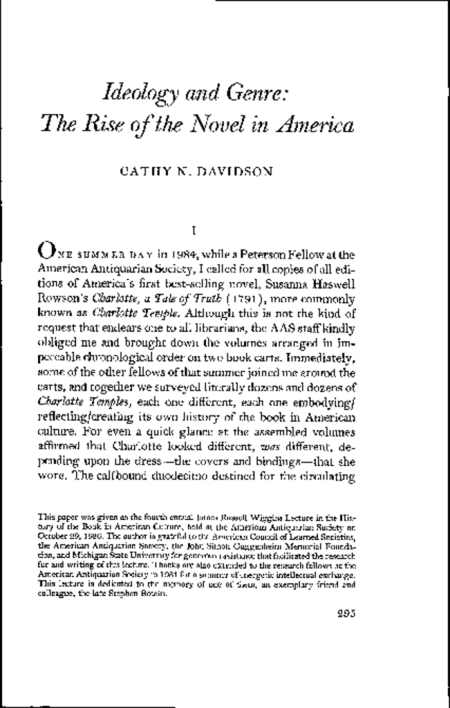Focuses on various editions of Susanna H. Rowson's 'Charlotte Temple' (1791), America's first best-selling novel, as representative of a new era in the history of the book in the United States. "An overt and covert cultural agenda, an ideological subtext," is encoded in the morphology of any text. The acts of writing, publishing, marketing, reading, and interpreting comprise a cultural production, as evidenced in the textual history of 'Charlotte Temple.' Author Rowson saw little of the profits from her best-selling novel, which had been considered subversive in England and only saw success in its American publishing by Mathew Carey after 1794. The various subsequent editions reveal a great deal about the development of the novel as a genre and its changing readership in the 19th century.
Ideology and Genre: The Rise of the Novel in America.
Publication Date
Volume
96
Part
2
Page Range
295-321
Proceedings Genre
